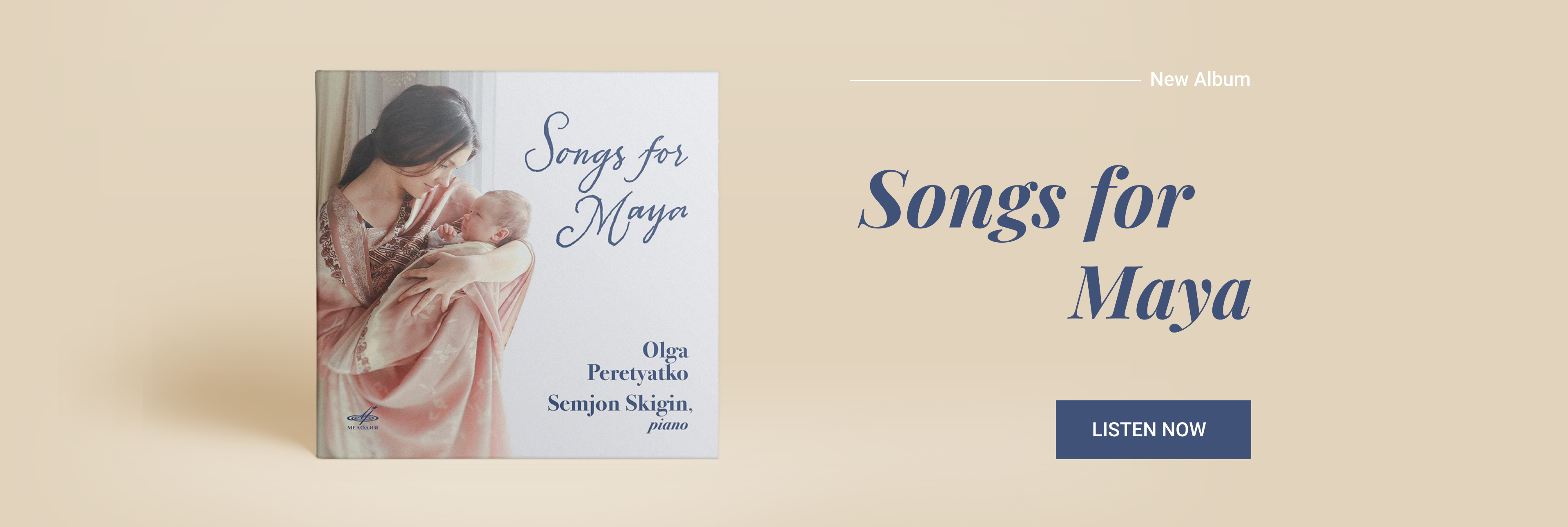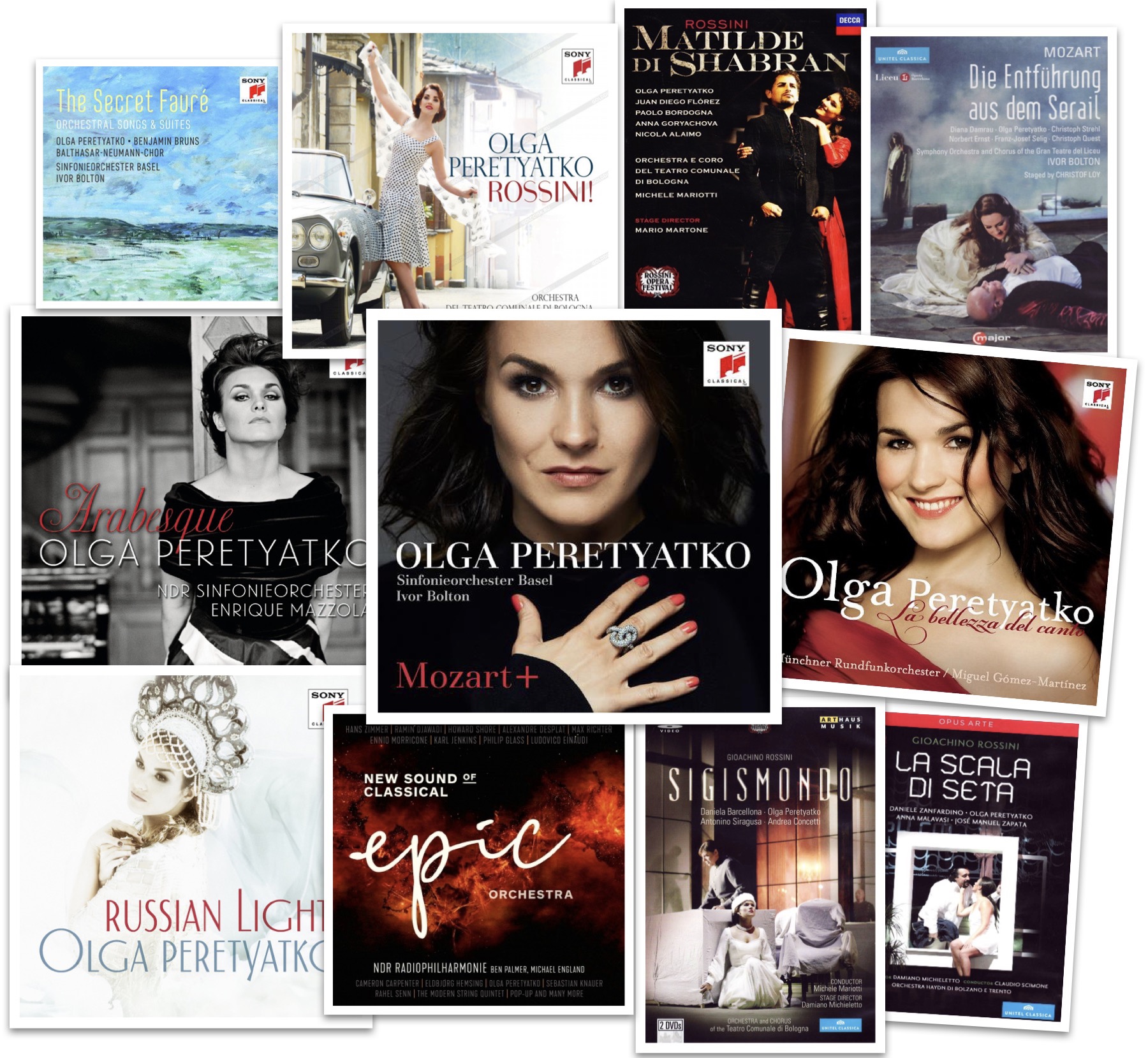
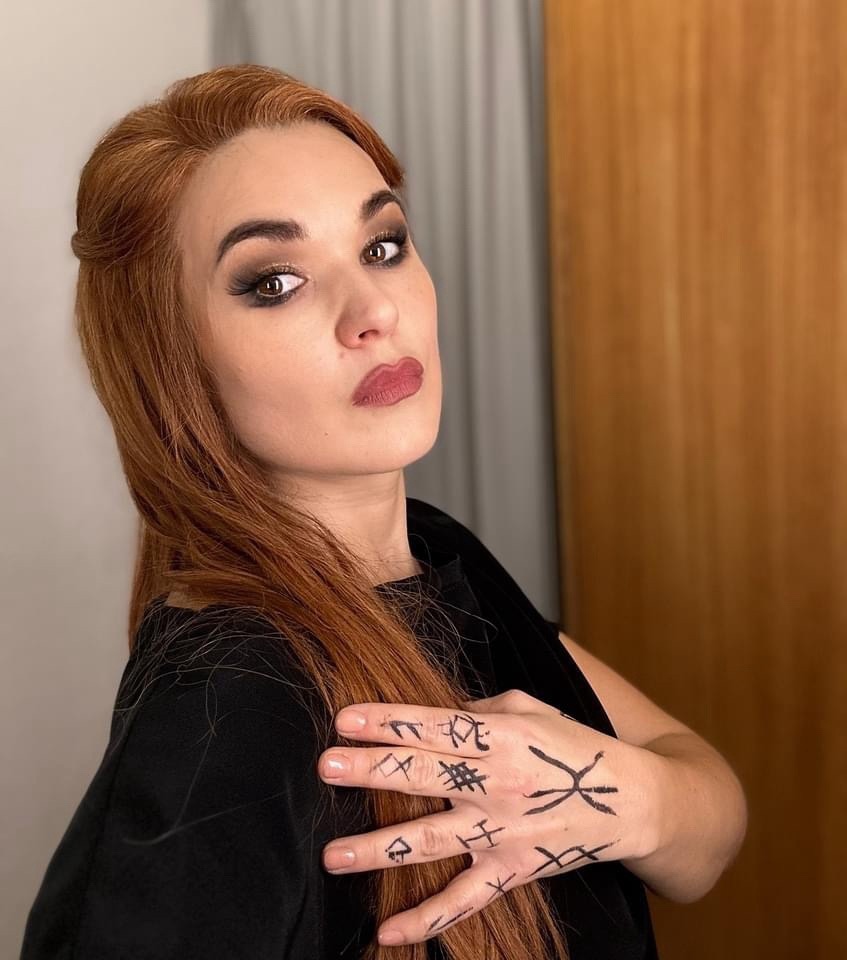
Olga Peretyatko makes her role debut as Norma at the Staatsoper Hamburg. Paolo Arrivabeni conducts. The performances take place on February 13, 16, 20 and 22, 2024.
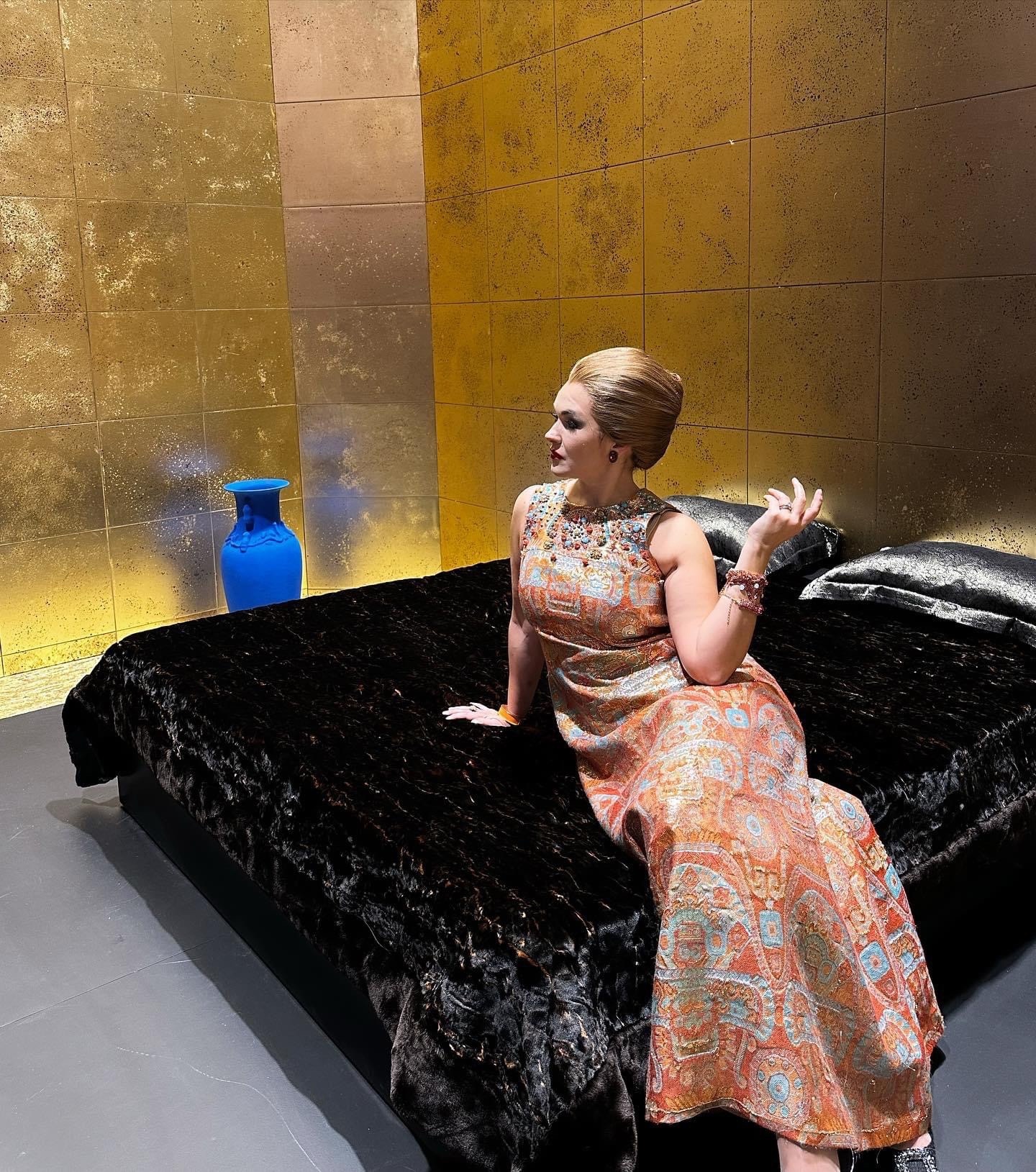
Olga Peretyatko made her debut as Magda de Civry in a new production of Puccini’s La rondine at the Teatro Regio Torino
In the year of Giacomo Puccini's centenary, the Teatro Regio Torino presents a new production of La rondine, directed by Pierre-Emmanuel Rousseau, which takes the action back to 1973. The brilliant, ironic and frustrated music of this Puccini gem is entrusted to the skilful hands of maestro Francesco Lanzillotta, a renowned interpreter of 20th century repertoire.
Critics have praised the singer's work:
"Russian soprano Olga Peretyatko returns to the Regio stage after appearing in The Puritans in 2015; possessing good vocals and excellent stage presence, she delivered a well-rounded Magda (a vocally impenetrable role), convincing both vocally and as an actor". Il Corriere Musicale
"Magda di Olga Peretyatko elegantissima nel canto e nel gesto, musicale, ottimamente cantata e interpretata con grande intelligenza". GBOpera
"Splendida Magda interpretata da Olga Peretyatko". Cultura Italia
"Nel cast spicca Olga Peretyatko che si cala a pieno nei tormenti e nelle contraddizioni di Magda". avvenire.it
"Sa Magda prend progressivement de la consistance vocale et dramatique... Mais c'est au moment des doutes et de la rupture, à l'acte Ill, lorsqu'elle est seule avec Ruggero, qu'elle montre une superbe musicalité et atteint les sommets par sa capacité à endosser le personnage avec toute la profondeur et la mélancolie requise". Cult news
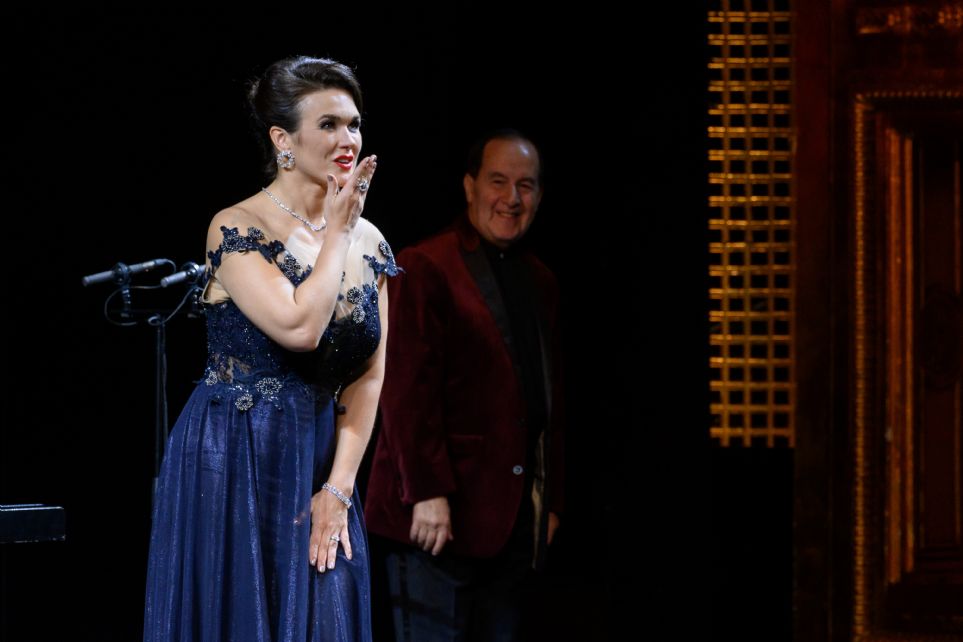
Soprano Olga Peretyatko gives a recital at Madrid's Zarzuela Theater. Accompanied by pianist Semyon Skigin, she presented works by Clara Schumann and Pauline Viardot.
From a review by Óscar del Saz for Codalario.com:
"La voz de la Peretyatko es de lírico-ligera, muy bella y cálida, casi mediterránea en la riqueza armónica, a la que se une una excepcional técnica ‘a la antigua’, basada en la profundidad de la respiración y el apoyo, sin utilizar nunca el sobre-apoyo, sin forzar nada en la emisión, todo sobre el aire, consiguiendo un timbre límpido, y muy bien proyectado en cualquier parte de la sala. Su paleta de dinámicas es muy rica, con un canto en piano que resulta exquisito.
También a voz plena, se permite fraseos y legatos que articulan una envidiable línea de canto, que se enriquece por su encomiable dicción. Su técnica vocal también tiene completamente resuelta la zona aguda, con todos los sonidos cubiertos, hermosos y con peso, perfectamente proyectados, donde nada se resiente aun teniendo que cambiar de idioma varias veces (alemán, ruso, francés, italiano)".
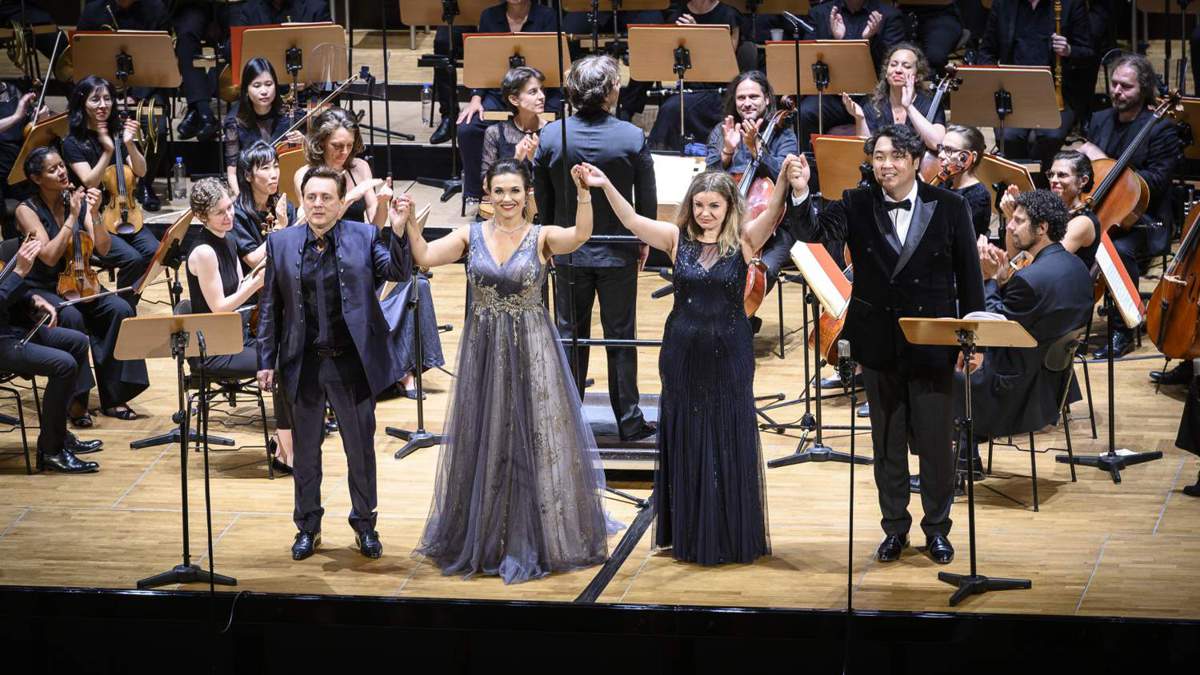
Olga makes her role debut as Leonora in Il Trovatore at Musikfest Bremen
A concert version of Verdi's opera Troubadour premiered at the Bremen Music Festival. Conducted by Jérémie Rohrer and his orchestra Le Cercle de l'Harmonie, performing Verdi's score using period instruments. Ivan Magrì performed the role of Manrico and Agnieszka Rehlis appeared as Azucena
"Bleibt noch Olga Peretyatko, die im vergangenen Jahr als Gilda („Rigoletto“) die Herzen des Publikums erobert hatte. Sie debütierte nun als Leonora und begeisterte vor allem im zweiten Teil mit ihrem wundervoll leuchtenden Sopran, den sie gekonnt durch die heiklen Koloraturen führte und mit dem sie immer wieder tolle Pianoklänge formte, manchmal aber auch zu viel Stimme gab". (kreiszeitung.de)
